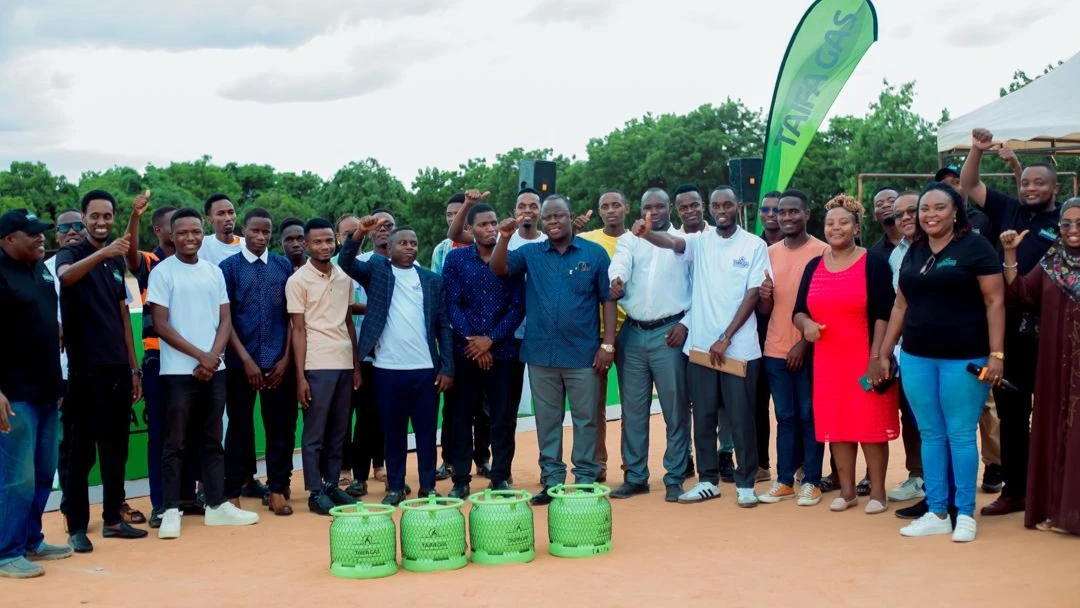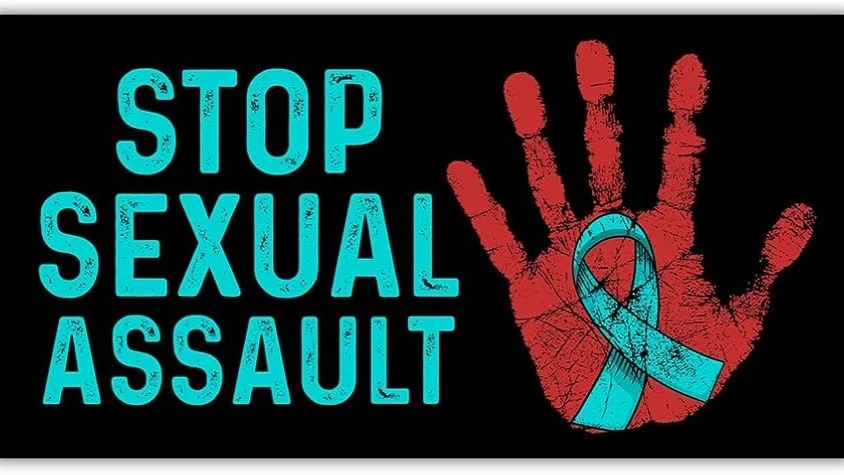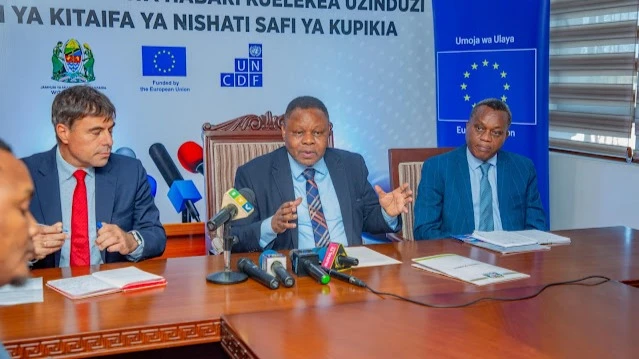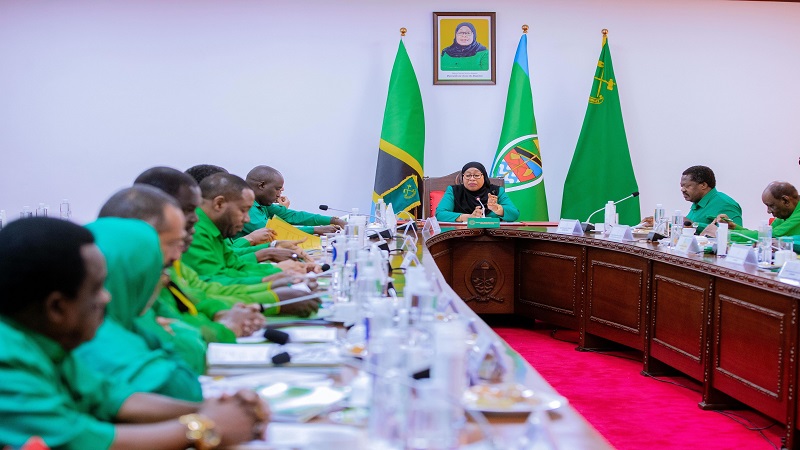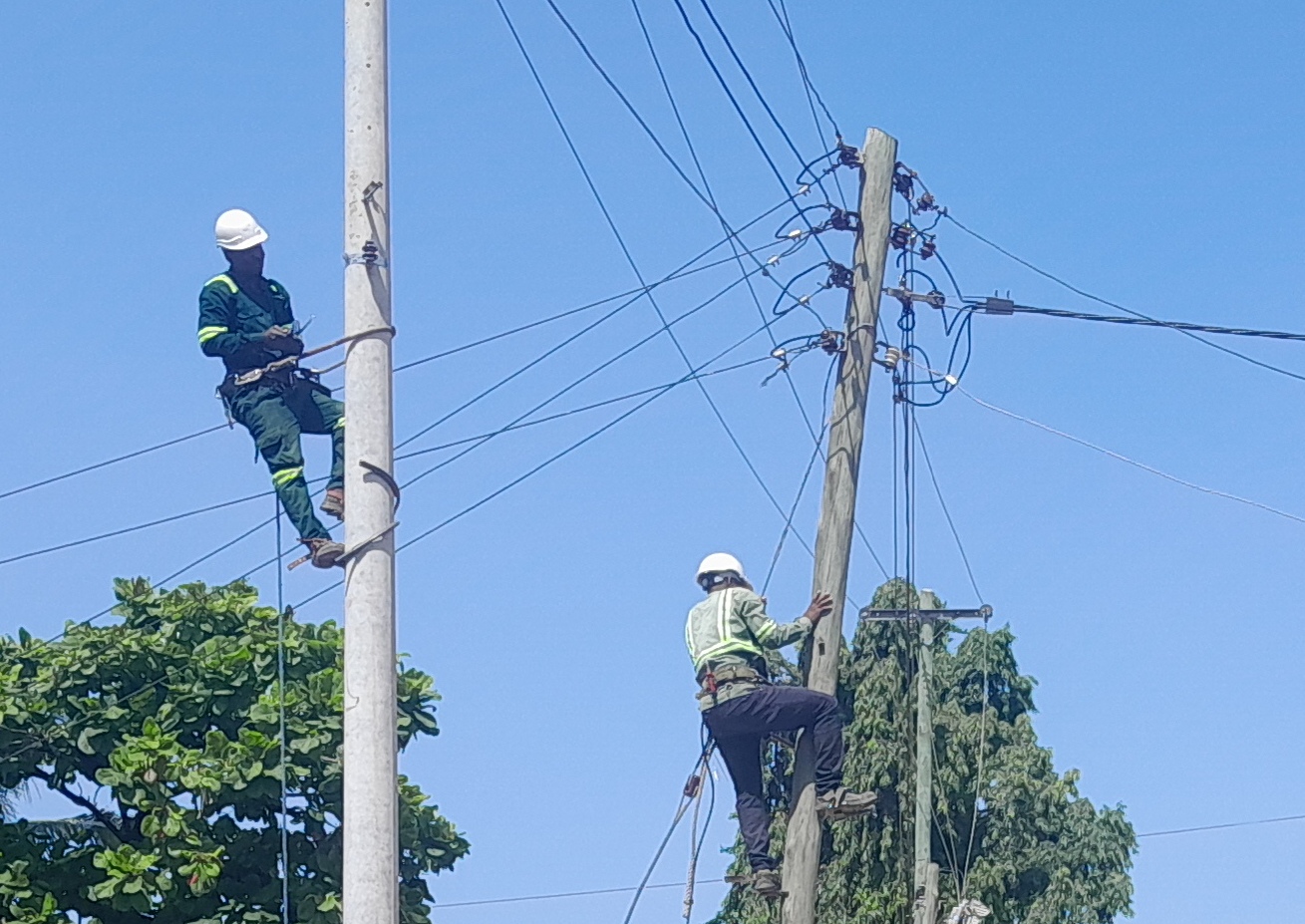Sexual violence denies girls future potential economic opportunities
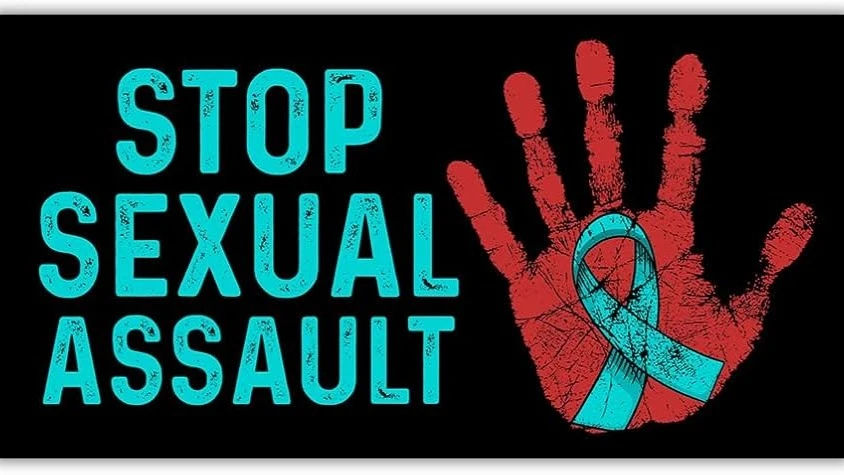
Sometimes in March this year, a girl aged 12 in Shinyanga region, went viral on social media for being impregnated by her elder brother aged 15.
The information, which was later confirmed by the Shinyanga Regional Police Gender Desk revealed that the girl was impregnated by her 15-year-old brother.
The children were sharing a bed to sleep at night, an act that led her being raped frequently.
The police statement noted that the children's parents made them sleep together because they believed they were still children and it would not happen for a brother to rape his younger sister and impregnate her.
This pregnancy, which is the result of incest, cannot be terminated due to the current Tanzanian law on abortion. Therefore, the girl is forced to raise the pregnancy until she gives birth.
The pregnancy has forced the girl to drop out of school. This child is likely to live a difficult life now and in the future due to losing the opportunity for education.
SACP Janeth Magomi, Shinyanga Regional Police Commander said: "The girl is an orphan and was living with her aunt. She is a standard six student at Uchunga Primary School. She confirmed to be raped by her brother. The boy has escaped and we are looking for him for further legal measures."
According to her, incest and rape denies girls future potential economic opportunities they should capitalized on.
Another such incident was reported by the Kibaha District Police Force in 2023 where a father impregnated his 14-year-old daughter.
The girl's mother told the police that her daughter had a mental health problem.
The daughter gave birth to a baby boy. She said that her daughter and the grandchild all depend on her because the victim is unable to engage in productive activities.
In the same year, the Songwe Regional Police Force reported an incident of a father raping his 15-year-old daughter and impregnating her while she was in standard seven, causing her to drop out of school and stopping her from sitting for the national examination.
According to the Tanzania Police Force Annual Report, in 2023 there were 8,691 rape cases reported to police stations across the country.
The World Bank warns that unintended pregnancies can lead to additional financial burdens for families, particularly those already struggling with poverty.
The costs associated with pregnancy care, childbirth, and raising an unplanned child can strain household budgets and potentially force families to sell assets or take on debt.
Going forward, Tanzania must urgently initiate amendments of its existing legislations to align with the Maputo Protocol and allow teenage girls and women terminate unintended pregnancies resulting from rape, incest and sexual assaults.
Tanzania ratified the Protocol to the African Charter on Human and People’s Rights on the Rights of Women in Africa on March 03, 2007 and deposited the instrument of ratification on May 07, 2007 but it is yet to be domesticated into its existing legislations.
Article 14 (2) (c) of the Maputo Protocol guarantees the rights of women and girls to access abortion for pregnancies following sexual assault, rape and incest and where the continued pregnancy endangers the mental or physical health of the mother or the life of mother or the foetus.
This journalist has learned from national and global health reports that unintended pregnancies have led to deaths of teenage girls and women who attempted unsafe abortions due to legal restrictions that denied them a right to procurement of safe abortions.
Such legal restrictions for the procurement of safe abortions from unintended pregnancies come with penalties stipulated under Sections 150, 151, 152, and 230 of the Tanzania’s Penal Code Cap. 16 R.E 2022.
For instance, Section 150 states: ‘Any person who, with intent to procure miscarriage of a woman, whether she is or is not with child, unlawfully administers to her or causes her to take any poison or other noxious thing, or uses any force of any kind, or uses any other means whatsoever, is guilty of an offense and is liable to imprisonment for fourteen year.’
To this end, the cited Penal Code Sections in question contravene Tanzania’s commitment to the ratified Maputo Protocol of 2003.
The Tanzania Demographic and Health Survey and Malaria Indicator 2022 (TDHS) report states that despite under-reporting of pregnancies resulting from gender-based violence (GBV) incidences, sexual assault, rape, and incest victims are rapidly increasing.
The TDHS 2022 report reveals that unsafe abortion cases are estimated at 482,000 annually for the period covering between 2015 and 2019.
During the reviewed period, unintended pregnancies were estimated at 1.3 million per year of which teenage pregnancies formed 22 percent.
Rape, sexual assaults and incest formed 41 percent of GBV prevalence while sexual violence accounted for 17 percent.
A significant number of such incidents are recorded at different police gender desks across regions in the country.
The Police Gender Desk Report 2021 revealed that a total of 29,373 GBV cases were reported of which 12,043 (41 percent) were cases of rape, incest, and sexual assault.
Specifically, 6,305 (21.5 percent) women were raped, 5,751 (18.5 percent) women experienced sexual assault, and 20 (one percent) women experienced incest.
According to the report, survivors of these incidents testified that the grief, physical, and mental trauma experienced were deadly.
“Survivors were also discouraged by their families and communities from reporting the incidents and were often blamed for disclosing the acts, thus making their life course and well-being totally affected,” reads the report in part.
The Sustainable Development Goals (SDG) Target 3.7 on sexual and reproductive health requires that by 2030, nations should ensure universal access to sexual and reproductive healthcare services, including for family planning, information and education, and the integration of reproductive health into national strategies.
Interviewed reproductive health experts are of the view that if the above identified Penal Code Sections are amended to align with Section 14 (2) (c) of the Maputo Protocol, unintended pregnancies could be safely terminated to enhance women’s mental and physical health and reduce the chances of unsafe abortions, which contribute to maternal mortality by 13 percent, a rate already relatively high, recorded at 104 deaths per every 100,000 live births.
The Tanzania Coalition on Demographic Awareness and Action (TDCAA) points out those penalties as main reasons why health experts collaborate with women in need of terminating unintended pregnancies to commit unsafe abortions in secrecy, which in most cases ends in deaths.
TCDAA affiliate, James Mlali, Sexual Reproductive Health and Development Consultant argued that other African countries such as Zambia, Zimbabwe, Rwanda, Mozambique, and the Benin have domesticated the Maputo Protocol and enacted laws to allow abortion in cases of pregnancies resulting from sexual assault, rape, and incest.
“Some of these countries, like Zambia, have gone further to include additional circumstances such as social and economic reasons, while Rwanda includes provisions for child pregnancies and forced marriages,” Mlali explained.
It’s on record that the high rate of rape cases was also highlighted by the then Minister of Home Affairs of Tanzania, Hamad Masauni, when addressing the parliament on April 6, 2022.
On that very date, Masauni stated that from 2019 to March 2022, there were 19,726 rape cases out of 27,838 GBV cases, and 443 infants were abandoned.
The United Nations Sexual and Reproductive Health Agency (UNFPA) 2022 annual report states that globally, nearly half of all pregnancies are unintended, meaning approximately 121 million women each year experience an unintended pregnancy.
It states that around 60 percent of these pregnancies end in abortion, with 45 percent of those abortions being unsafe.
A survey by researchers from Guttmacher Institute New York; National Institute for Medical Research Tanzania; and Muhimbili University of Health and Allied Sciences, published in Keogh SC et al titled: ‘Incidence of induced abortion and post-abortion care in Tanzania 2015’ shows that unsafe abortions account for more than one-third of hospitalizations for complications related to pregnancy and roughly one-quarter of maternal deaths.
The survey underlines that in Tanzania, the fear of prosecution, prevalent among women and health care providers alike, drives women to seek clandestine abortions that are often unsafe.
“Laws and policies on abortion in Tanzania are ambiguous and often confusing. The Penal Code is broadly understood to authorize abortion to save a woman’s life;
On the other hand, it is unclear whether the procedure is legal to preserve the woman’s physical or mental health,” reads the Survey results.
The Survey states that in Tanzania, an estimated 405,000 abortions were performed in 2013. This number translates to a rate of 36 abortions per 1,000 women aged 15-49 and a ratio of 21 abortions per 100 live births.
It claims that the abortion rate is the same as the estimated rate for the East Africa region as a whole (36 per 1,000 women) and slightly higher than the rate for Sub-Saharan Africa which was estimated at 31 per 1,000 women.
The Survey reveals that within Tanzania, abortion rates vary widely by zone, from 11 per 1,000 women in Zanzibar to 47 in Southern Highlands and 51 in the Lake zone.
“In 2013, about 67,000 women were treated in health facilities for complications resulting from unsafe abortions while 100,000 women who experienced complications requiring treatment didn’t receive the medical attention they needed,” reads the Survey.
According to the World Health Organization report for 2019, between 2010 and 2014 almost 56 million induced abortions occurred worldwide each year, half of them were unsafe abortions and almost all took place in developing countries.
Three out of four abortions occurring in Africa and Latin America were unsafe. WHO states that the risk of dying from unsafe abortion was rated the highest in Africa.
For every woman who dies, 106 additional women suffer morbidity and disability.
It states that in every minute 40 women undergo unsafe abortion while in every eight minutes a woman dies from unsafe abortion.
WHO states that as of 2019 an estimated 24 million women suffered secondary infertility caused by unsafe abortion. WHO estimates that five million women are hospitalised every year for treatment of complications related to unsafe abortion.
This journalist had sought clarification regarding the domestication of the Maputo Protocol from the Commission on Human Rights and Good Governance for nearly two months
At last, the Commission’s Director for Public Relations Monica Mnanka said: “The Commission is uncomfortable to respond or comment on your questions regarding the domestication of the Maputo Protocol.”
Responding to a question by Special Seats Member of Parliament Maimuna Pathan in Parliament on May 26th this year, regarding the government's position on amending Section 150 of the Penal Code to allow pregnancies resulting from incest and rape to be terminated, Deputy Minister for Lands, Housing and Human Settlements Development Geofrey Pinda on behalf of the Minister for Constitution and Legal Affairs said the Ministry of Constitution is reviewing the provisions of the Penal Code to close all loopholes concerning victims of unintended pregnancies resulting from rape and incest.
Top Headlines
© 2025 IPPMEDIA.COM. ALL RIGHTS RESERVED












